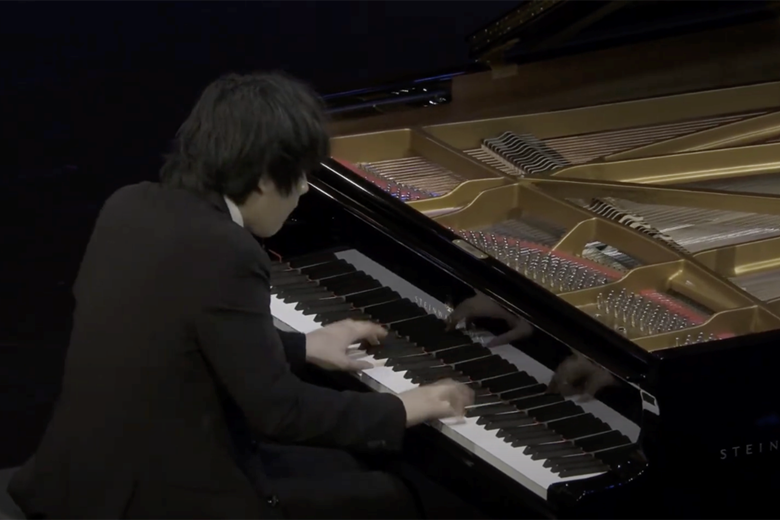Jed Distler's Cliburn Blog No 8: sharing the joy
Thursday, June 9, 2022
The semi-finals begin with two markedly different examples of programme-building

With the 12 Semi-finalists in place, we move from the new and intimate Van Cliburn Concert Hall to Fort Worth’s larger Bass Performance Hall, where each participant will be heard in a one-hour recital and in a Mozart Concerto with the Fort Worth Chamber Orchestra.
There were only two performances on Wednesday June 8 - which you watch below – a pair of recitals that represented two markedly different examples of programme-building. Yutong Sun’s program consisted of well-contrasted works that one would never expect to go together, yet somehow the stylistic diversity and smartly paced running order worked. However, opening with ‘Corpus Christi en Sevilla’ from Albéniz’s Iberia is a risky business. Call me a heretic, but this piece goes on too long for what it has to say, and those annoying passages in loud, broken right-hand octaves drive me nuts. The best performances require a pianist to have an orchestral imagination, rhythmic flexibility and fluid, proportioned phrasing that doesn’t pound the bar lines into your head. Yet tonight the music stood still by way of Yutong Sun’s notey articulation and generalised dynamics.
Nor did the pianist’s Chopin F sharp minor Polonaise, Op 44, come alive as he flattened out the outer sections’ inherent swagger and shaped the central Mazurka episode indifferently. Those sudden upward scales leading into the recapitulation are supposed to be violent eruptions (remember how Horowitz shocked you out of your seat in this passage?), rather than Sun’s innocuous warm-up exercises.
Fortunately, Sun snapped out of his funk in time for two powerfully and sensitively delivered Preludes by the great Ukrainian composer Boris Lyatoshynsky, an unusual yet musically plausible transition into Prokofiev’s Eighth Sonata. Here the solid musicality, meticulous preparation and focused consistency that are hallmarks of Sun’s best pianism were all in place. Did his slow movement match Kate Liu in the Preliminary round for her floating legato and delicacy in the slow movement, or her polyphonic aplomb in the first movement’s gnarly development section? No, not really.
Juxtaposing Beethoven’s Waldstein Sonata, Liszt’s La Campanella, Ravel’s Gaspard de la nuit and Balakirev’s Islamey makes little inherent musical and programming sense. Yet all are showpieces, and it’s clear that Masaya Kamei was out to wow the jury, come hell or high water. I, for one, was wowed by Kamei’s Waldstein. I loved his careful layering of textures in the outer movements, and how his gradations in touch illuminated Beethoven’s harmonic motion. Because he divided the coda’s downward octave scales between both hands, rather than play them as right-hand glissandos, the pianist will undoubtedly get a citation from the Fort Worth Police Force’s Urtext Violation Squad.
In any event, Kamei let his guard down in La Campanella, where occasional over-pedalling muddied the performance’s elegant edge. The pianist quickly regained composure for a playful, diabolical and winningly audacious Gaspard de la nuit; more exciting on the surface than Marcel Tadokoro’s relatively Apollonian approach from a few days ago. Any other pianist would be crazy to follow up such a piece and performance with the criminally difficult Islamey. Yet, again, I was bowled over by Kamei’s colossal technique and boundless palette of colours. Kamei may have set out to wow the jury, but he wound up sharing the joy.
To watch more videos of the performances discussed above, visit the Cliburn International Piano Competition website: cliburn.org
Gramophone is a Media Partner of The Cliburn International Piano Competition













